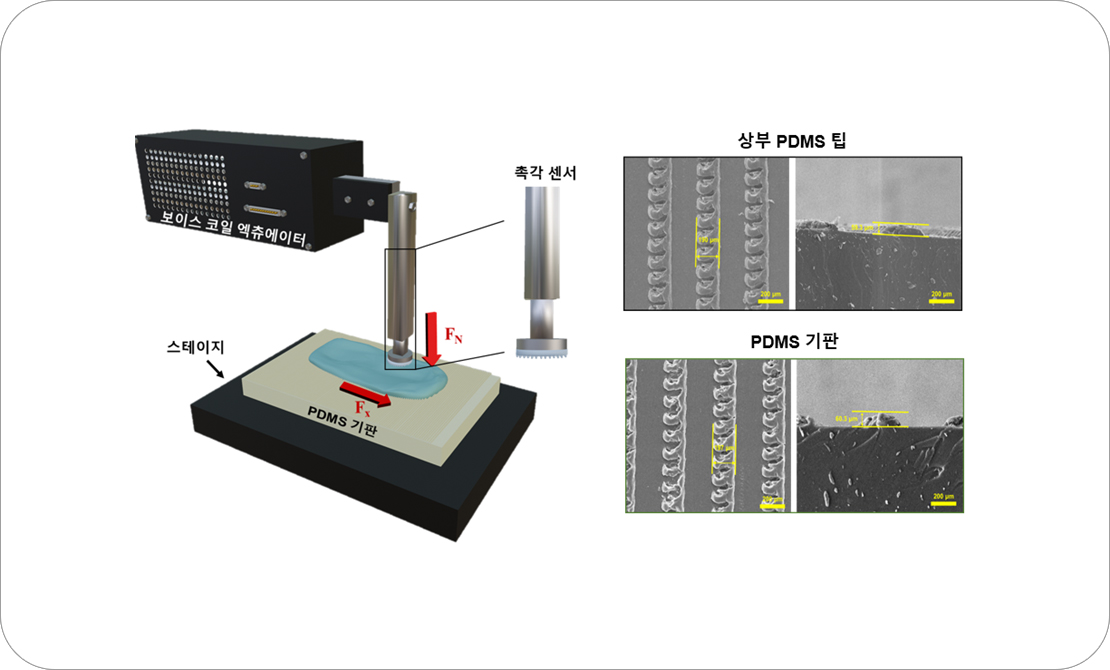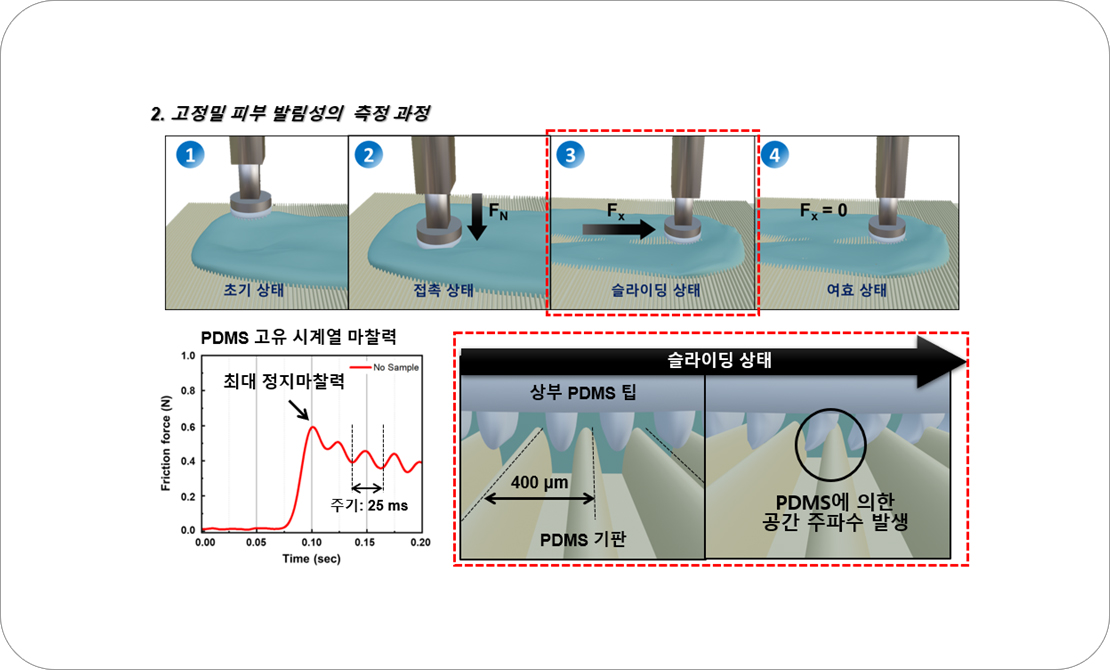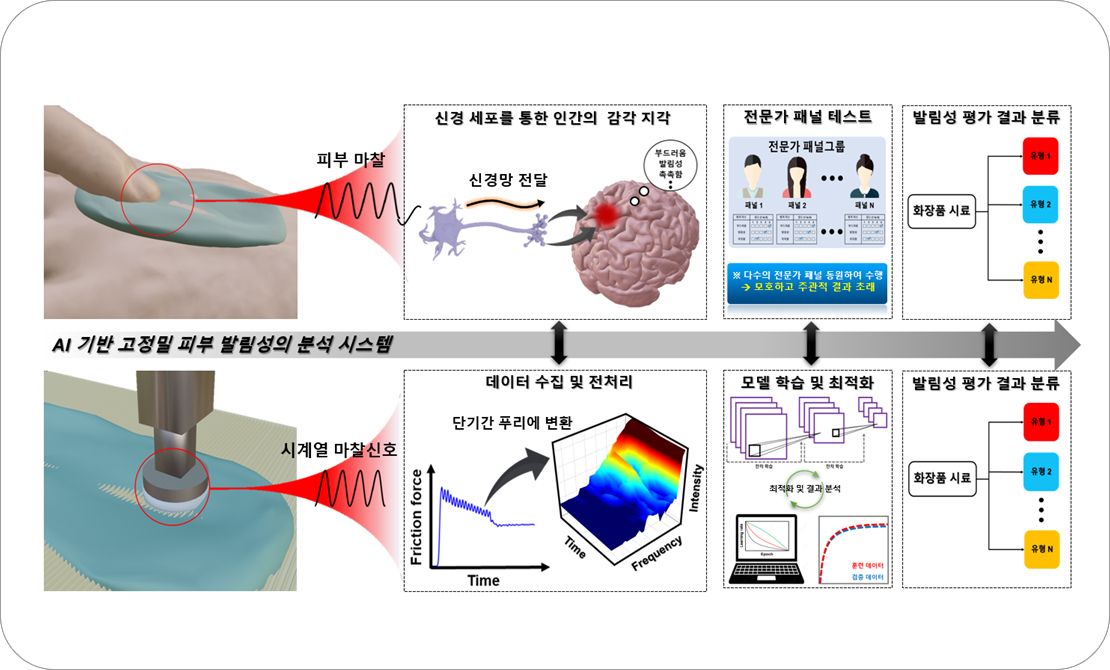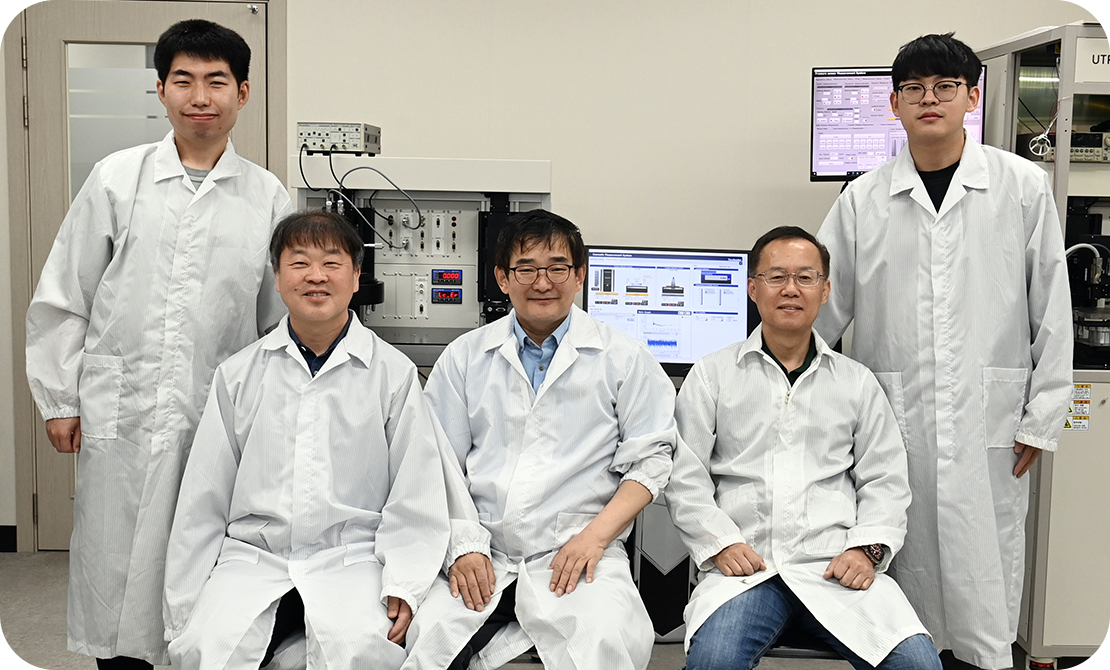ETRI Pioneers AI Technology in the K-Beauty Industry
- Development of High-Precision Skin Spreadability Analysis System for Cosmetics with 99% Accuracy
- Replaces Traditional Sensory Evaluation by Experts, Saving Time and Costs


AI High-Precision Skin Spreadability Measurement Device
Korean researchers have developed an innovative AI-based system to analyze the spreadability1) of cosmetics. This system can accurately identify the texture of cosmetics when applied to the skin with over 99% accuracy, drawing global attention.
Electronics and Telecommunications Research Institute (ETRI) announced that it has developed a system using deep learning algorithms to measure and effectively analyze the various texture characteristics of cosmetics.
The technology developed by ETRI analyzes changes in friction measurements when cosmetics are applied to the skin using deep learning and data analysis techniques such as Short-Time Fourier Transform (STFT)2) and Continuous Wavelet Transform (CWT)3).
1) Spreadability: The property of cosmetics and dermatological products to spread on the skin, considering not only mechanical properties (friction characteristics) but also consumer-perceived factors (coverage, moisture, matte finish, etc.).
2) Short-Time Fourier Transform: Represents changes in frequency components over time, commonly used in speech analysis and processing.
3) Continuous Wavelet Transform: Optimal time-frequency transformation for non-stationary signal analysis, indicating that the frequency domain representation of the signal changes over time.

AI High-Precision Skin Spreadability Measurement Process
Researchers collected data in environments simulating the act of applying cosmetics to the skin and reinterpreted the one-dimensional friction signal changing over time into a two-dimensional frequency spectrum. This allowed them to extract and analyze the desired time-frequency mixed signals, achieving over 99% accuracy.
This technology can be used to recommend the most suitable cosmetics for different demographics such as young women, middle-aged men, and infants, as well as for different seasons.
It also has the potential to replace the current traditional sensory evaluation method by experts, where evaluators manually apply products to the skin and subjectively score their moisturizing or drying effects, target demographic, and seasonal suitability.

Spreadability Analysis Process by Expert Sensory Evaluation (Top), Spreadability Analysis Process by AI-Based High-Precision Skin Spreadability Analysis System (Bottom)
However, traditional sensory evaluation requires significant time and costs for training experts and conducting supplementary tests for inconsistent results. Additionally, with the large number of products being produced and awaiting release, manually evaluating spreadability is limited. ETRI’s technology reduces errors caused by individual differences in human evaluation, providing objective assessments and saving both time and costs.
ETRI successfully developed this high-precision cosmetics usability test device in collaboration with Tera Leader Co., Ltd. and Amorepacific Co., Ltd., using AI-based cosmetics and dermatological product spreadability analysis systems. Amorepacific provided over ten types of formulation samples for texture measurement, forming a dataset of around 5,000 items for the spreadability research.

ETRI-Tera Leader Joint Research Team (From left : ETRI’s researcher Yoo Jengsu, ETRI’s director Yong Suk Yang, Tera Leader’s CEO Han Seok Gil, ETRI’s principal researcher Lee Myung Lae, Tera Leader’s researcher Han Sang Heon)
Yong Suk Yang, the director of ETRI’s Intelligent Component and Sensor Research Section, stated, “This innovative achievement elevates cosmetics and dermatological product analysis technology using deep learning models to classify commercial cosmetic creams. We plan to develop this technology to lead the K-beauty industry in new consumer trends and personalization, even amid global economic downturns.”
The researchers also plan to extend their research to temperature sensors, enabling the technology to analyze aspects such as thermal sensations, scents, and colors.
They expect the AI-based cosmetics spreadability analysis technology to be applicable in various fields, including determining the tactile properties of clothing and textiles, paint application characteristics, and automotive tire friction properties.
The research results were published on May 13th in ACS Applied Materials & Interfaces.
This research was conducted as part of the “Development of Spreadability Analysis System for AI-based Cosmetics and Skin Topical Applications” project by the Ministry of Science and ICT and the Institute for Information & Communications Technology Planning & Evaluation (IITP).
Lee Myung Lae, Principal Researcher
Intelligent Components and Sensors Research Section
(+82-42-860-1175 mllee@etri.re.kr)
 Previous
Previous